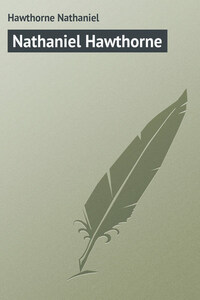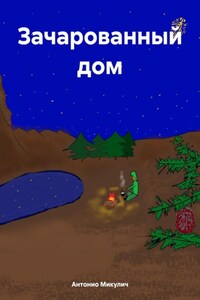On a fine morning in September we set out on an excursion to Blenheim, – the sculptor and myself being seated on the box of our four-horse carriage, two more of the party in the dicky, and the others less agreeably accommodated inside. We had no coachman, but two postilions in short scarlet jackets and leather breeches with top-boots, each astride of a horse; so that, all the way along, when not otherwise attracted, we had the interesting spectacle of their up-and-down bobbing in the saddle. It was a sunny and beautiful day, a specimen of the perfect English weather, just warm enough for comfort, – indeed, a little too warm, perhaps, in the noontide sun, – yet retaining a mere spice or suspicion of austerity, which made it all the more enjoyable.
The country between Oxford and Blenheim is not particularly interesting, being almost level, or undulating very slightly; nor is Oxfordshire, agriculturally, a rich part of England. We saw one or two hamlets, and I especially remember a picturesque old gabled house at a turnpike gate, and, altogether, the wayside scenery had an aspect of old-fashioned English life; but there was nothing very memorable till we reached Woodstock, and stopped to water our horses at the Black Bear. This neighborhood is called New Woodstock, but has by no means the brand-new appearance of an American town, being a large village of stone houses, most of them pretty well time-worn and weather-stained. The Black Bear is an ancient inn, large and respectable, with balustraded staircases, and intricate passages and corridors, and queer old pictures and engravings hanging in the entries and apartments. We ordered a lunch (the most delightful of English institutions, next to dinner) to be ready against our return, and then resumed our drive to Blenheim.
The park gate of Blenheim stands close to the end of the village street of Woodstock. Immediately on passing through its portals we saw the stately palace in the distance, but made a wide circuit of the park before approaching it. This noble park contains three thousand acres of land, and is fourteen miles in circumference. Having been, in part, a royal domain before it was granted to the Marlborough family, it contains many trees of unsurpassed antiquity, and has doubtless been the haunt of game and deer for centuries. We saw pheasants in abundance, feeding in the open lawns and glades; and the stags tossed their antlers and bounded away, not affrighted, but only shy and gamesome, as we drove by. It is a magnificent pleasure-ground, not too tamely kept, nor rigidly subjected within rule, but vast enough to have lapsed back into nature again, after all the pains that the landscape-gardeners of Queen Anne's time bestowed on it, when the domain of Blenheim was scientifically laid out. The great, knotted, slanting trunks of the old oaks do not now look as if man had much intermeddled with their growth and postures. The trees of later date, that were set out in the Great Duke's time, are arranged on the plan of the order of battle in which the illustrious commander ranked his troops at Blenheim; but the ground covered is so extensive, and the trees now so luxuriant, that the spectator is not disagreeably conscious of their standing in military array, as if Orpheus had summoned them together by beat of drum. The effect must have been very formal a hundred and fifty years ago, but has ceased to be so, – although the trees, I presume, have kept their ranks with even more fidelity than Marlborough's veterans did.
One of the park-keepers, on horseback, rode beside our carriage, pointing out the choice views, and glimpses at the palace, as we drove through the domain. There is a very large artificial lake (to say the truth, it seemed to me fully worthy of being compared with the Welsh lakes, at least, if not with those of Westmoreland), which was created by Capability Brown, and fills the basin that he scooped for it, just as if Nature had poured these broad waters into one of her own valleys. It is a most beautiful object at a distance, and not less so on its immediate banks; for the water is very pure, being supplied by a small river, of the choicest transparency, which was turned thitherward for the purpose. And Blenheim owes not merely this water scenery, but almost all its other beauties, to the contrivance of man. Its natural features are not striking; but Art has effected such wonderful things that the uninstructed visitor would never guess that nearly the whole scene was but the embodied thought of a human mind. A skillful painter hardly does more for his blank sheet of canvas than the landscape-gardener, the planter, the arranger of trees, has done for the monotonous surface of Blenheim, – making the most of every undulation, – flinging down a hillock, a big lump of earth out of a giant's hand, wherever it was needed, – putting in beauty as often as there was a niche for it, – opening vistas to every point that deserved to be seen, and throwing a veil of impenetrable foliage around what ought to be hidden; – and then, to be sure, the lapse of a century has softened the harsh outline of man's labors, and has given the place back to Nature again with the addition of what consummate science could achieve.











